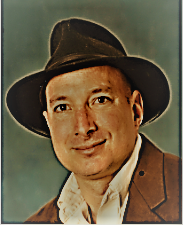Taking a scholarly route to institutional change: Theory, practice and tools to support educational transformation in STEM
with Professor Noah Finkelstein (University of Colorado Boulder, Department of physics)
|
Thursday, April 15th 12:00-1:00pm, Biomed 300 Host: Colin West |
 |
Description: Despite numerous calls for the transformation of undergraduate education, there is still a lack of successful models for creating large-scale, systemic cultural changes at our institutions. To date, change efforts have generally only focused on one of three scales: disseminating curricula and pedagogy, developing reflective teachers, or enacting institutional policy. These efforts illustrate many of the challenges of institutional change; in particular, they highlight the need for a holistic approach that integrates across multiple institutional levels: individual faculty, whole departments, and university policymakers. I present current work on models of change, some of our action-research projects that are approaches to change, and new research-based tools to support our change efforts. In particular, I look forward to interactive discussions around an effort to enact a Teaching Quality Framework that outlines both a scholarly approach to evaluating our education practices and a process for enacting such a tool.
Bio: Noah Finkelstein is a Professor of Physics at the University of Colorado Boulder and conducts research in physics education. He serves as a PI of the Physics Education Research (PER) group and is also a Director for the Center for STEM Learning on campus, which has become one of eight national demonstration sites for the Association of American Universities’ (AAU) STEM Education Initiative. He serves as Co-Director of the national Network of STEM Education Centers. Finkelstein’s research focuses on studying the conditions that support students’ interest and ability in physics – developing models of context. These research projects range from the specifics of student learning particular concepts, to the departmental and institutional scales of sustainable educational transformation. This research has resulted in over 120 publications. He is increasingly involved in education policy. In 2010, he testified before the US Congress on the state of STEM education at the undergraduate and graduate levels. He serves on many national boards including chairing both the American Physical Society’s Committee on Education and PER Topical Group. He serves on the Board of Trustees for the Higher Learning Commission, is a Technical Advisor to the AAU, and very involved in the Association of Public and Land-grant Universities’ efforts in STEM education. He is a Fellow of the American Physical Society, and a Presidential Teaching Scholar and the inaugural Timmerhaus Teaching Ambassador for the University of Colorado system.
